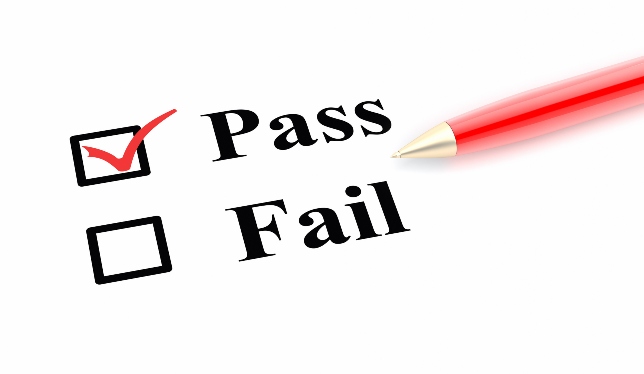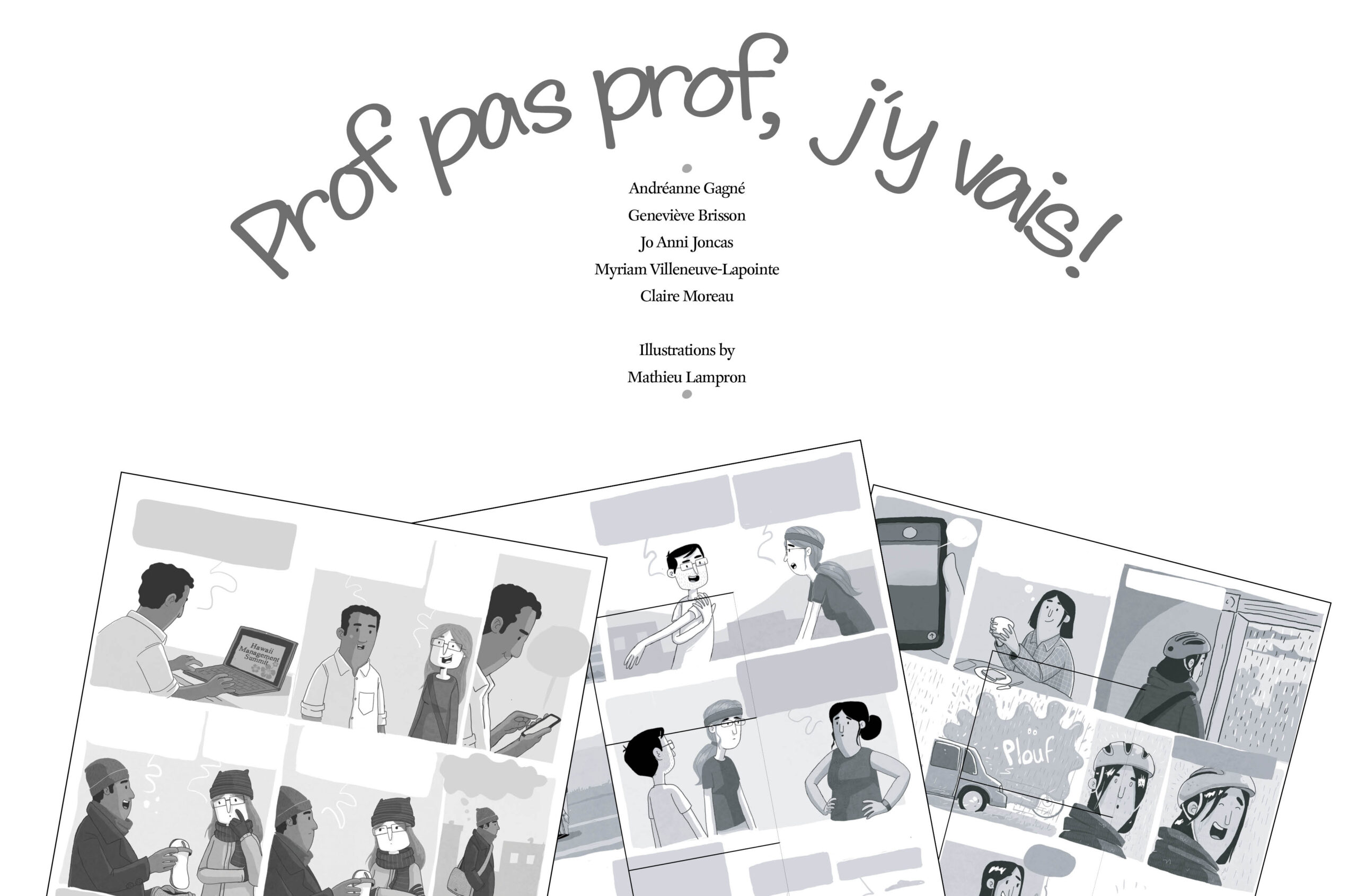A universal pass/fail grade is the best option for ‘pedagogically compromised’ courses
Use of letter grading in rapidly redesigned online courses further reinforces the many inequities already magnified during the current crisis.

The unpredictability of the COVID-19 pandemic means professors across Canada will likely be teaching online for the fall term. Regrettably, they will have little time to redesign courses or create assessments more suited to learning in online environments. As professors in a faculty of education, we teach and conduct research in assessment and evaluation, curriculum studies, creative pedagogy, mathematics education and social justice. Cognizant of issues with validity, fairness and equity in letter grading at the best of times, we are deeply concerned about the continued use of letter grading during this pandemic.
As discussed in recent University Affairs articles, universities have adopted varied policies for assigning final grades in courses disrupted by the pandemic. Some invoked a mandatory pass/fail policy, while others allowed students to choose between the letter grade determined by their professor and a pass/fail option. Notably, most policies were limited to courses in the winter 2020 term, suggesting professors should return to “normal” letter grading practices for those hastily redesigned courses to be offered in the coming months. Use of letter grading in these courses which, despite professors’ best efforts will be pedagogically compromised, further reinforces the many inequities already magnified during this crisis. We urge universities to offset inequity and enhance fairness by adopting a universal pass/fail grading policy.
Over the past few months, professors and students have become acutely aware of their need for access to high speed internet, updated computers and software, and the knowledge and skills to use these tools effectively. Such resources are not equally distributed nor is the time needed to develop these skills equally available as each of us confronts the challenges of this pandemic. These realities will not be resolved before new courses begin. A defining feature of fair assessment is that all students have an “opportunity to learn” what is being assessed. The fact that some students are much more disadvantaged than others by changes to teaching and learning during this pandemic must not be ignored in university grading policies.
Perpetuating inequalities
Awareness of those disproportionately impacted by the pandemic is growing daily: women and children are at heightened risk of violence; low-wage workers have lost their jobs, or have been declared essential and face higher risk of exposure; international students face increased feelings of isolation and financial burden; and Indigenous students are at higher risk to the impacts of COVID-19. Compounding these difficulties, the individuals and groups most disadvantaged by COVID-19 mirror those routinely disadvantaged by many forms of assessment, as shown in decades of research. Maintaining letter grades at this time perpetuates such inequities.
While allowing students to opt into pass/fail grading has been suggested as a way to increase fairness by respecting a learner’s autonomy and protecting their rights, we see this is as an illusion of fairness. To begin, in many universities the pass/fail choice is not really a choice at all since students are advised that if they make this “choice,” the associated course credits cannot be used to satisfy prerequisite or program requirements, or for admission to other programs. Beyond this troubling policy, as many professors acknowledge, the meaning of an A+ assigned in a course hastily redesigned and taught online will be quite different from an A+ grade in the course before the pandemic, even if both courses are taught by the same professor. If grades are to be fair and meaningful, they must reflect the rapid changes taking place as we collectively do our best to offer courses and keep programs running.
Concern is often raised about the implications of pass/fail grading for scholarships, fellowships, and graduate school admissions. Not only can universities make the choice to treat admissions processes differently during this unsettled time, many programs have been using pass/fail grading for years. They do so because studies consistently demonstrate that pass/fail grading improves psychological well-being and supports deeper learning without lowering standards or reducing achievement. Pass/fail grading helps to shift attention to formative feedback, decreases stress, encourages collaboration, results in students attempting more challenging tasks, reduces competition, and raises standards because the criteria for a “pass” can be set more purposefully within a course or program. Thus, pass/fail grading enhances the fairness of assessment in substantive rather than illusory ways.
We cannot imagine circumstances more suited to this approach than what students and professors are currently facing. Our view aligns with the Canadian Assessment for Learning Network and with widely endorsed assessment standards that identify principles and practices necessary to protect the rights of students, ensure fairness, and assign grades based on defensible information. See, for example The Student Evaluation Standards (2003) of the Joint Committee on Standards for Educational Evaluation as well as The Standards for Educational and Psychological Testing (2014) published by American Educational Research Association, American Psychological Association and National Council on Measurement in Education.
Grading in university courses should not contribute to inequities during the COVID-19 crisis. We can act now to avoid institutionalizing inequity by resisting letter grading or optional pass/fail policies and instead require universal pass/fail grading for all courses that have become pedagogically compromised.
Martha J. Koch is an assistant professor of mathematics education and educational assessment. Shannon D.M. Moore is an assistant professor of social studies education. Melanie D. Janzen is an associate professor working at the interstices of teacher education and curriculum studies. Bruno de Oliveira Jayme is a Freirian art educator, activist, and assistant professor in the department of curriculum, teaching and learning. All four are faculty members at the University of Manitoba.
Featured Jobs
- University LibrarianYukon University
- Human Resources and Organizational Behaviour - Lecturer, 2-year termUniversity of Saskatchewan
- Research Chair in Systems Transformation and Family Justice (Faculty Position)University of Calgary
- Architecture - Assistant ProfessorMcGill University
- Creative and Cultural Industries - Assistant Professor (Fashion Studies and Cultures)Chapman University













Post a comment
University Affairs moderates all comments according to the following guidelines. If approved, comments generally appear within one business day. We may republish particularly insightful remarks in our print edition or elsewhere.
1 Comments
The authors claim that “pass/fail grading enhances the fairness of assessment in substantive rather than illusory ways.” But if student #1 scratches by in most courses (assuming his/her skill level is D) and student #2 excels normally (let’s assume s/he has an A average), giving them both a pass just creates a gross distortion. It makes both students appear equivalent on paper when, in fact, one is far superior. To hand in a written assignment, a student needs access to any computer. These days, that is not difficult.